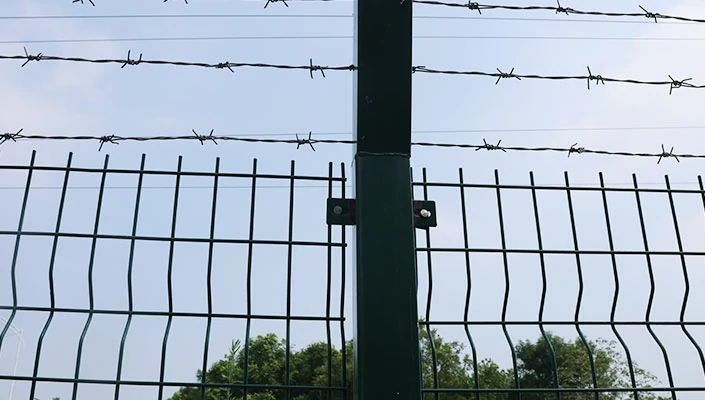Creative Solutions for Building a Chicken Fence to Enhance Your Garden Space
Chicken Fencing for Your Garden A Comprehensive Guide
When it comes to maintaining a vibrant and healthy garden, choosing the right type of fence is crucial, especially if you want to protect your plants from hungry chickens. Chickens can be a gardener’s best friend, helping to control pests and provide nutrient-rich manure. However, they can also pose a threat to delicate seedlings and young plants if left to roam freely. Thus, understanding how to properly fence your garden for chickens is essential.
Understanding the Need for Fencing
Chickens are curious creatures, and their natural instinct is to scratch and peck at anything that catches their attention. In a garden setting, this means they might dig up roots, eat seeds, or even disturb delicate flowers. Therefore, a secure fence is necessary not only to keep chickens out but also to protect your garden's integrity.
Types of Fencing
1. Wire Fencing One of the most popular choices for chicken fencing is wire mesh. This can range from simple chicken wire to more robust welded wire fencing. Chicken wire is affordable and easy to install but may not be strong enough to deter larger animals if they are determined. Welded wire, on the other hand, provides a sturdier barrier and is ideal if you’re also trying to keep out pests like raccoons or foxes.
2. Wooden Fencing Wooden fences offer an aesthetically pleasing option for your garden. They can be customized in height and design, but they may require more maintenance over time due to decay and weathering. Ensure that any wooden fence is tall enough (at least 3-4 feet) to prevent chickens from flying over.
3. Electric Fencing If you are serious about keeping chickens out, electric fencing can offer a reliable solution. It provides a psychological barrier as chickens learn quickly to avoid areas that give them a mild shock. However, installing electric fencing can be more labor-intensive and may require a power source.
chicken fence for garden

4. Portable Fencing If you want the flexibility to move your garden or have chickens free-range on specific days, portable fencing systems are ideal. These lightweight, easily maneuverable fences can be set up and taken down quickly, allowing you to control where your chickens have access.
Installation Tips
- Depth When installing your fence, be sure to bury the bottom of the fencing at least a foot underground. Chickens tend to dig, and this will help prevent them from burrowing under the fence.
- Height Make your fence high enough to deter jumping or flying. For most chicken breeds, a minimum height of four feet is advisable.
- Gates Ensure that any gates are securely latched and fitted with a lock, as chickens can be surprisingly resourceful when it comes to finding their way around barriers.
- Maintenance Regularly inspect your fence for any damage or wear. Even the smallest hole can allow chickens to slip through and wreak havoc on your garden.
Conclusion
A well-planned chicken fence is an essential component of any garden that aims to keep chickens at bay while reaping their benefits. By choosing the right type of fencing and following installation best practices, you can create a secure environment for your plants to thrive. Whether you prefer a rustic wooden fence or a more modern wire solution, the key is to ensure it is both effective and conducive to the beauty of your garden. With these measures in place, you can enjoy the harmony of chickens and gardening without compromising on the health of your plants.
-
Space-Saving Chain Fence Hacks Vertical Gardening with Cyclone MeshNewsJul.16,2025
-
Innovations in Iron Nail Wire Production for Modern ConstructionNewsJul.16,2025
-
Creative Uses of Wire Netting Fence in Modern Landscape DesignNewsJul.16,2025
-
Barbed Wire Fence Innovations in Anti-Climb TechnologyNewsJul.16,2025
-
Architectural Uses of Umbrella Nails for Aesthetic Roof DesignsNewsJul.16,2025
-
Architectural Uses of Razor Barbed Wire in Secure Urban DesignNewsJul.16,2025




